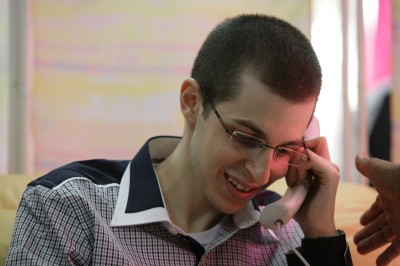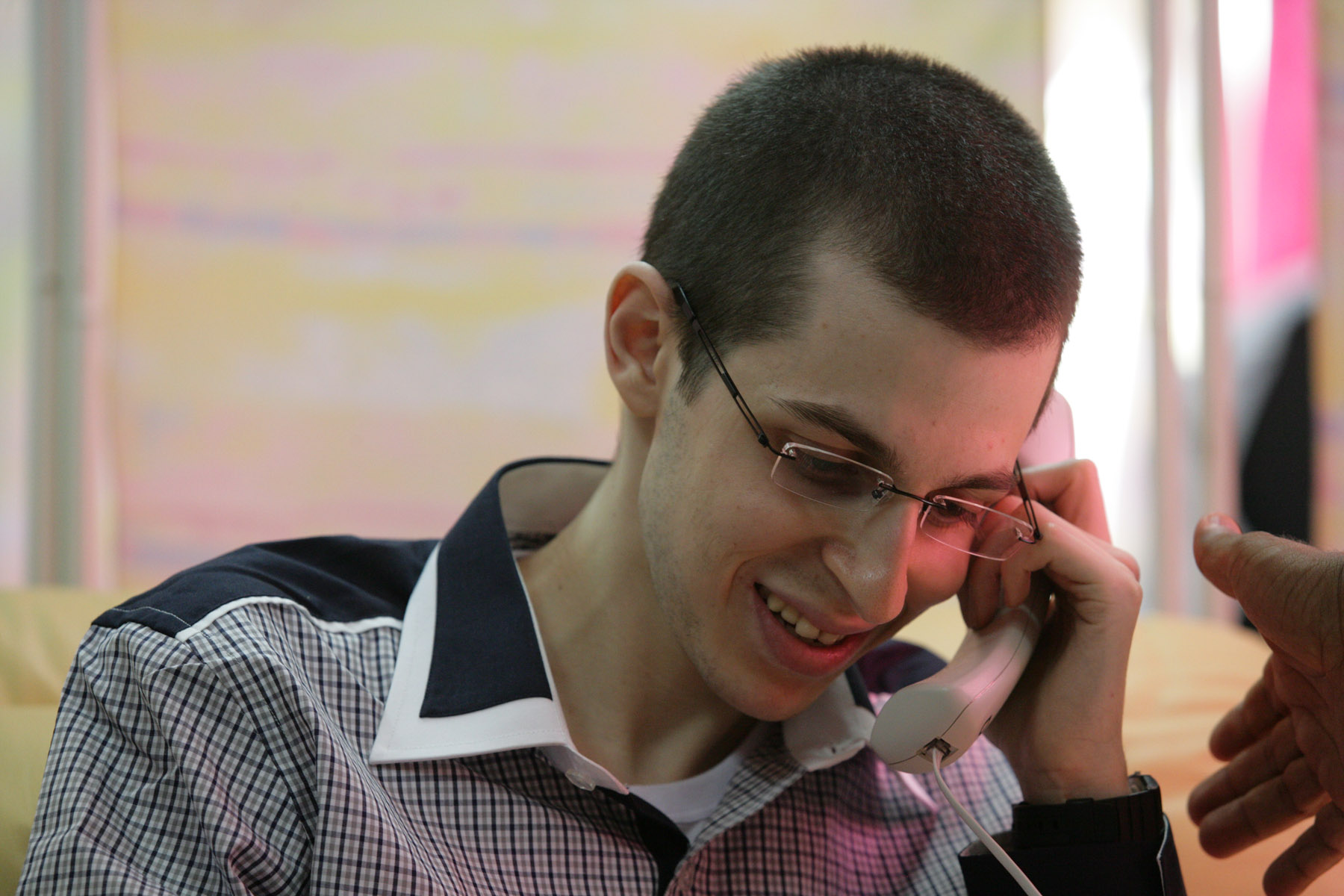
On October 16th, New York City’s Yeshiva University hosted an event billed as a panel discussion with Gilad Shalit and half the members of his IDF platoon. The title, for all intents and purposes, was GILAD SHALIT; in the weeks leading up to the discussion, everyone here at Y.U. would ask, “Are you going to the Gilad Shalit thing?” It was his name, printed in all caps, that dominated event flyers, and it was the name of the Facebook page. Last I checked, the event had something like 800 confirmed attendees. In short, the advertising and the descriptions of the event promised a direct engagement between the Y.U. student body and Gilad Shalit.
The atmosphere in the hours before the event was lively and buzzing. Hundreds of Y.U. students milled around Lamport Auditorium excitedly discussing the chance to see and hear Gilad in his military context. I took my place in the line, remembering the last time a Y.U. event had caused such a commotion—and attracted such a massive crowd (relative to Y.U., that is). It was December 22, 2009, and hundreds of Y.U. students crowded down Amsterdam Avenue to try and get into an event titled “Being Gay in the Orthodox World.” I was not yet a student at Y.U., but I was invited to the event on Facebook, and thought, “Wow, Y.U. is legitimately spurring on conversation about modern life and religion; I should do my part and go.” So I went, and waited in line with my soon-to-be-fellow students, and we all sounded off on each other about what was happening, what was going to happen, where things could go with the discussion. As it turned out, I didn’t get into the event, along with around 200 other people. Still, something happened: our religious discourse was gently pushed forward, and I was in the proximity, and that stayed with me.
Here in 2012, we stood waiting in the mid-October chill, curious about seeing and hearing someone who arguably became our national brother, son or friend during his five years of Hamas captivity. From June 2006 until October 2011 we listened for any news of his condition, lobbied for his release, and most of all, we worried. We worried about the young man—the teenager—who stared out at us from ubiquitous “GILAD IS STILL ALIVE” posters around Israel and Zionist institutions in the U.S. and Europe. Here, one year after his return home, we would receive the chance to hear him speak for himself, the first time many of us would hear him solely in his own context. Or so we thought.
The stage featured two rows of tables, each with a microphone, under a screen displaying various images of Y.U. students engaged in assorted aspects of religious Zionism: the Israeli Day Parade, Yom Ha’atzmaut celebrations, etc. I personally did not attend those events, their loudness registering as shrill to my ears. In recent years, the cultural trappings of American Religious Zionism have put me off, as I find that I can’t hear myself think seriously and critically about my Zionism with their videos and slogans buzzing in my ear. Though my Internet browser leans more toward Haaretz and +972 than the Jerusalem Post these days, I still felt immense pride for the men soon to take the stage, and I was happy to be there, counted among their supporters.
Still, I could barely understand why Gilad would want to speak here, or anywhere else for that matter. Five years of captivity, some months at home, and then a speaking tour? Nevertheless, he was here, in the room, and when he got up there, I would stand and applaud, hoping our collective relief at his safety would register with him in some way.
Rabbi Kenneth Brander, the dean of Y.U.’s Center for the Jewish Future, opened the talk, and was followed by an army psychologist. The event started to reach its apex with a short talk by the commander of Gilad’s platoon, whose heart-wrenching account of what it was like to lose three soldiers—two to death, and one to captivity—started off what we imagined to be an evening of memory and reckoning. The dead would be honored and the living would try to make meaning of their sacrifice and our work. Yet when the time came for the platoon, and Gilad with them, to ascend to the stage, no one moved. Instead, Rabbi Brander asked the platoon questions from the podium, and one by one, other veterans went up to the podium to answer in a mixture of charmingly broken English and Hebrew. Gilad never answered any questions and was never seen by a large majority of the room. I happened to land a seat near the front, so I could make out a small, awkwardly grinning young man, with a complexion like a ghost: The face I had only known from the posters of my earlier teenage years, and from his parents’ tent outside the Prime Minister’s office. I don’t blame him for not getting up there, only the people who said that he would. Rabbi Brander would send out an email the next day to Y.U. students:
While Gilad was scheduled to address the audience last night, we must all understand that being only a short year after his traumatic experience behind enemy lines, he is still struggling to cope with that trauma. Last minute, he felt it would be too emotionally difficult to speak.
One still imagines though, that some announcement could have been made during the event that reordered the evening and did not embarrass Gilad. Such subtleties are beyond the ken of Y.U., I suppose. They did choose to hold this event, after “one short year.” The likely reality is that the IDF decided to change around the event last minute, a decision met with a stunning lack of grace.
Walking out with a confused crowd, I realized something else about the night’s event that marked a distinction with the Y.U. ‘Gay Panel’ of December 2009. Moving aside from the fact that Gilad did not speak and was not seen by Y.U. that night, the discussion promised did not materialize in any meaningful way. The real absence that night was substantive discourse, the kind we attended Y.U. to find—the kind we were promised. Questions as obtusely intended as “Why do you think Israel has a bad rep in the press,” and “What would you tell the Y.U. audience,” may generate soundbites and useful platitudes, but they don’t go anywhere in advancing our knowledge and understanding of the situation in the Middle East or in the IDF. As the teeming mass of students exited the auditorium, the only things I could detect were confusion and disappointment. If we can scream loudly for Israel, can we not also discuss her thoroughly?

